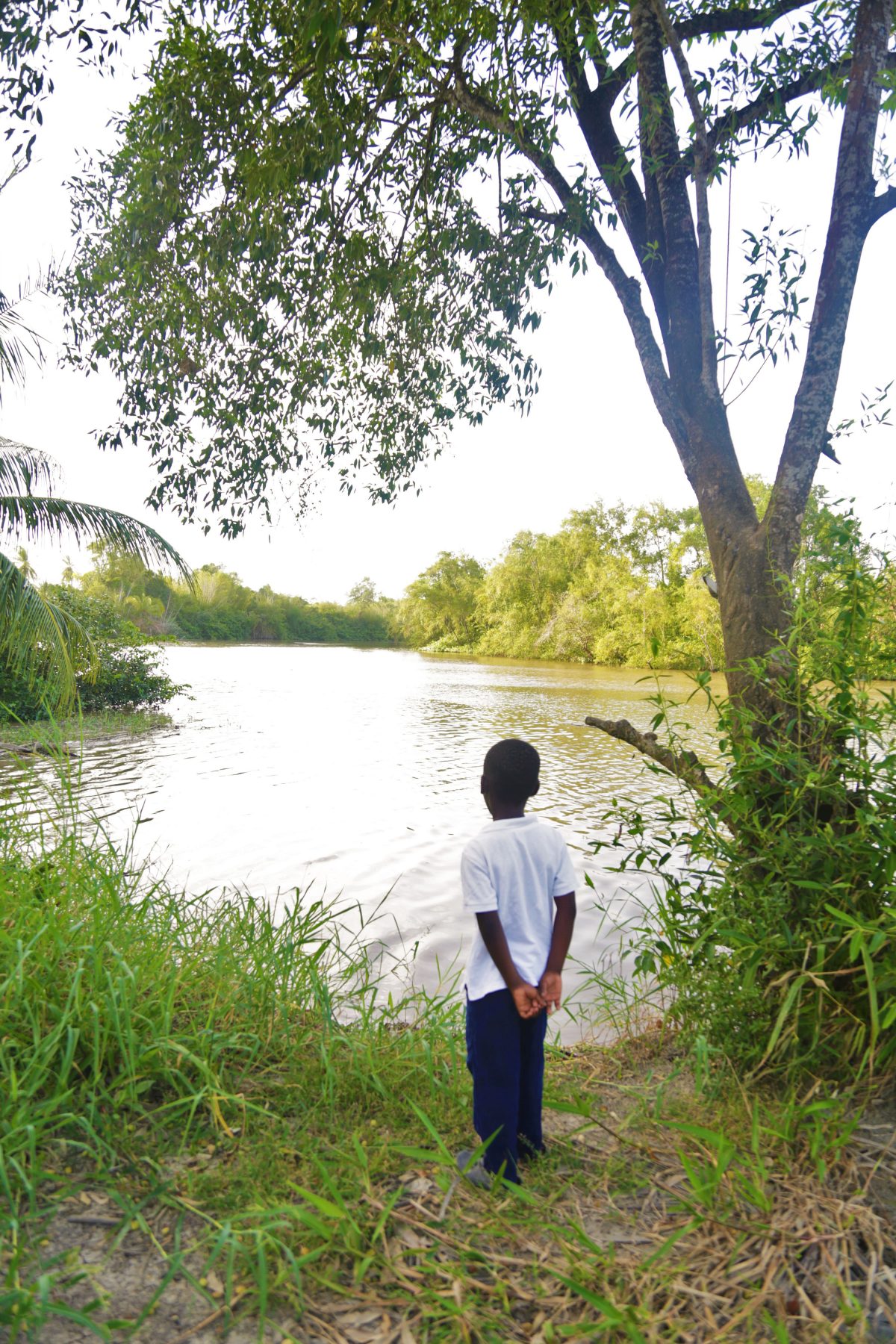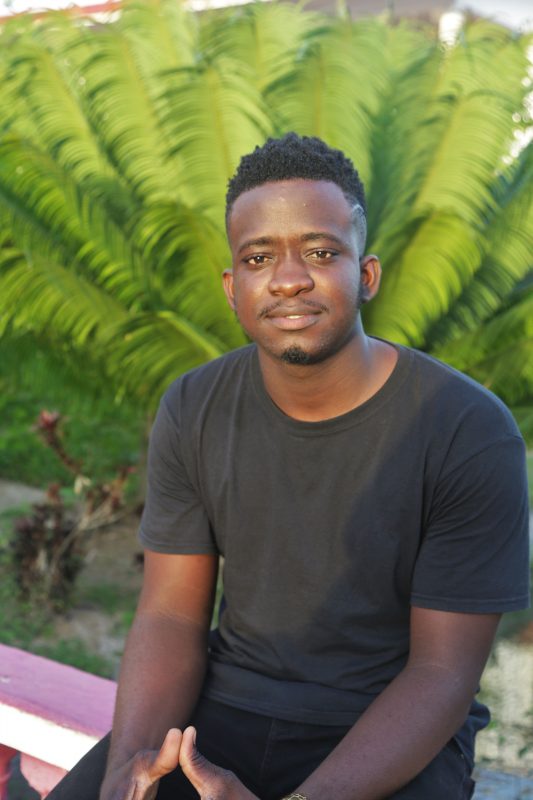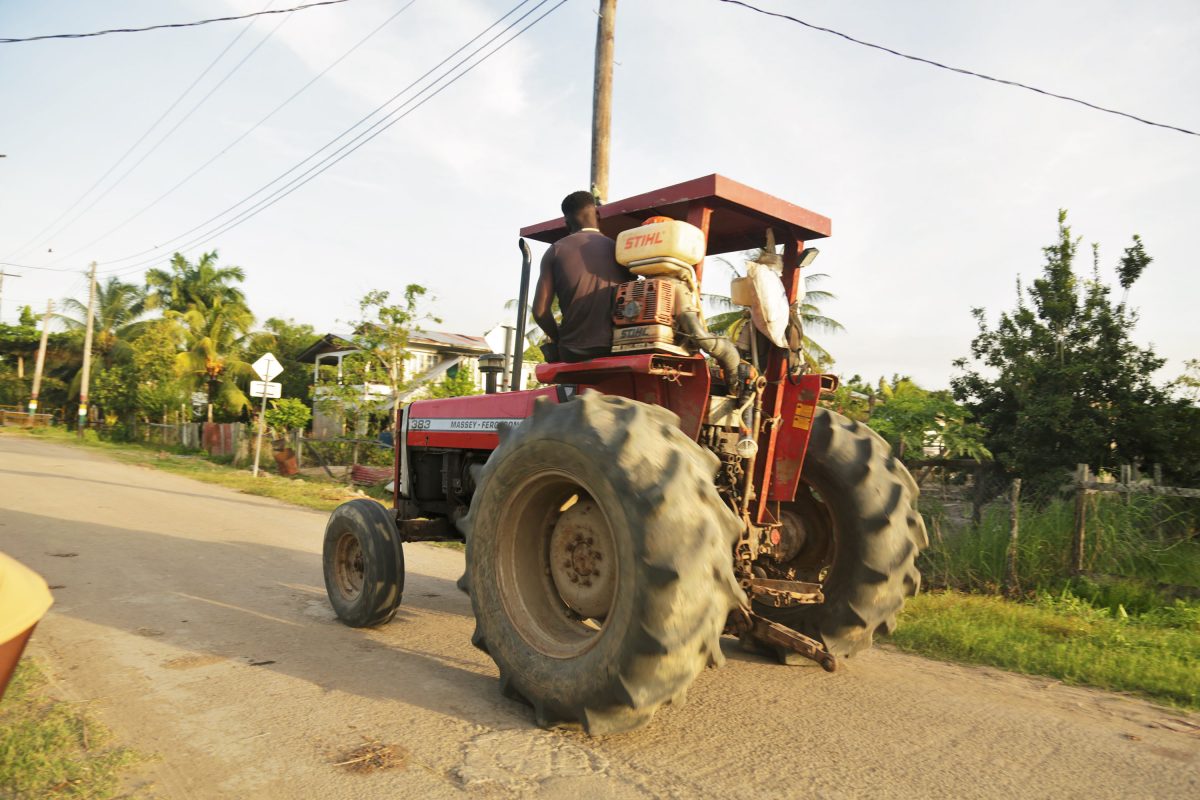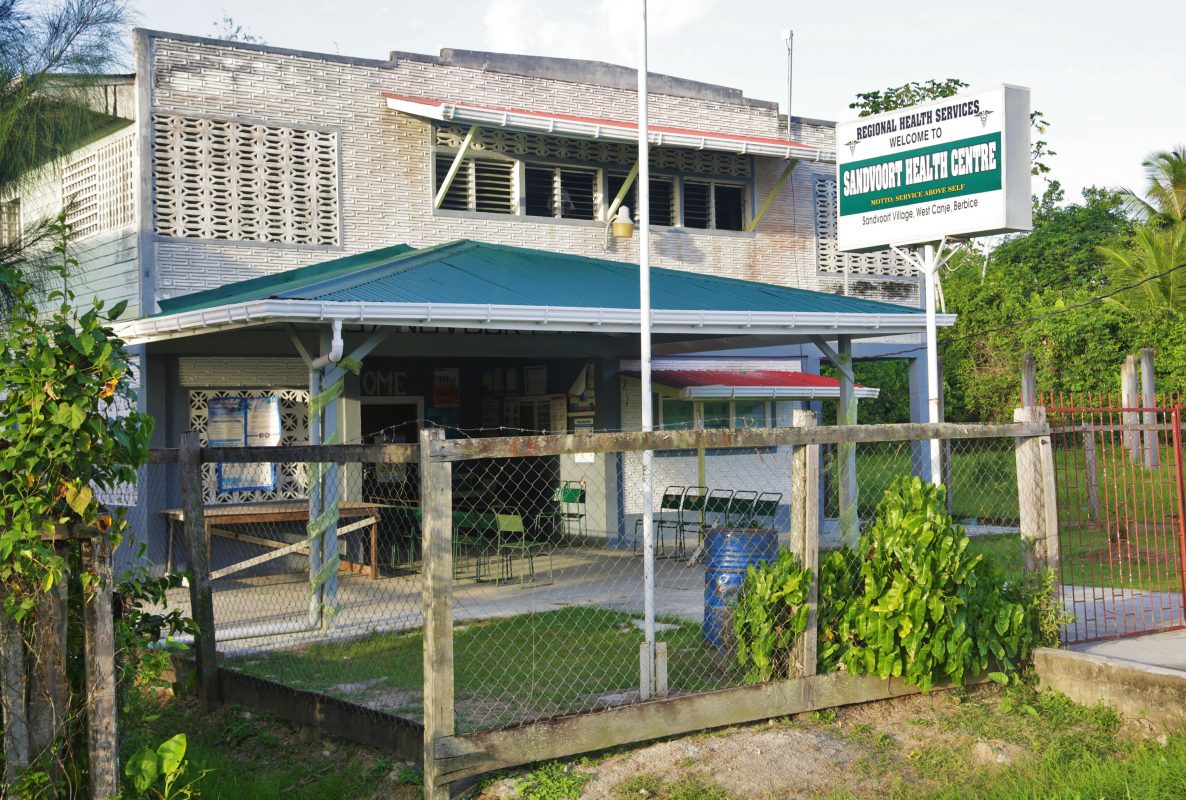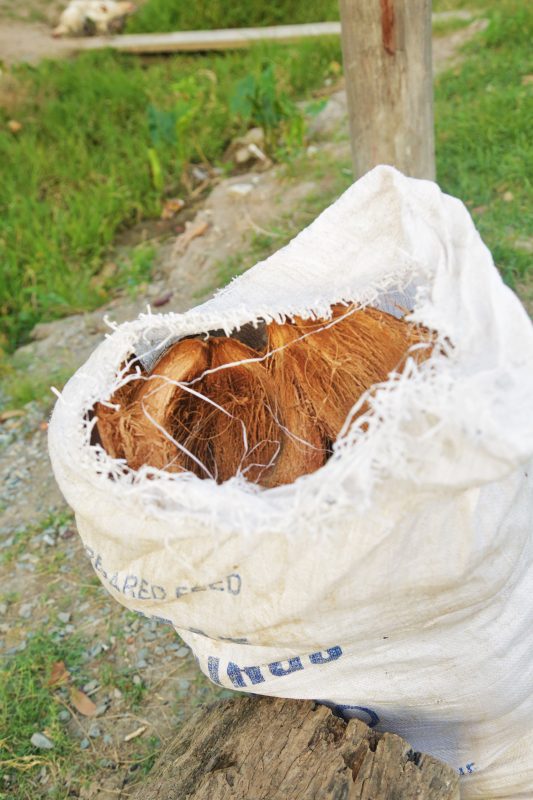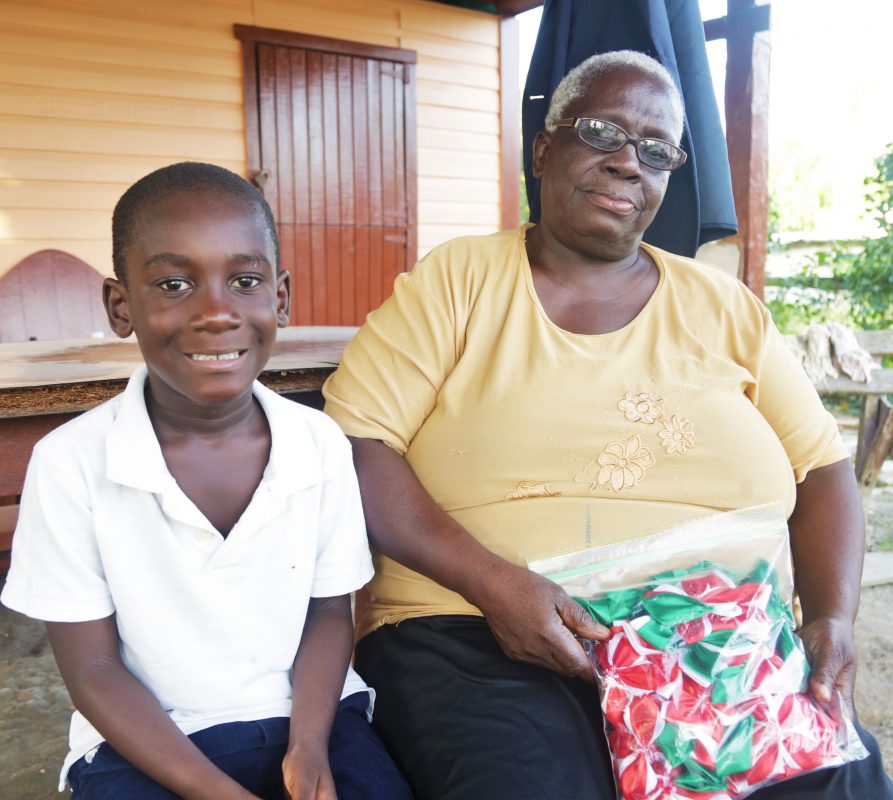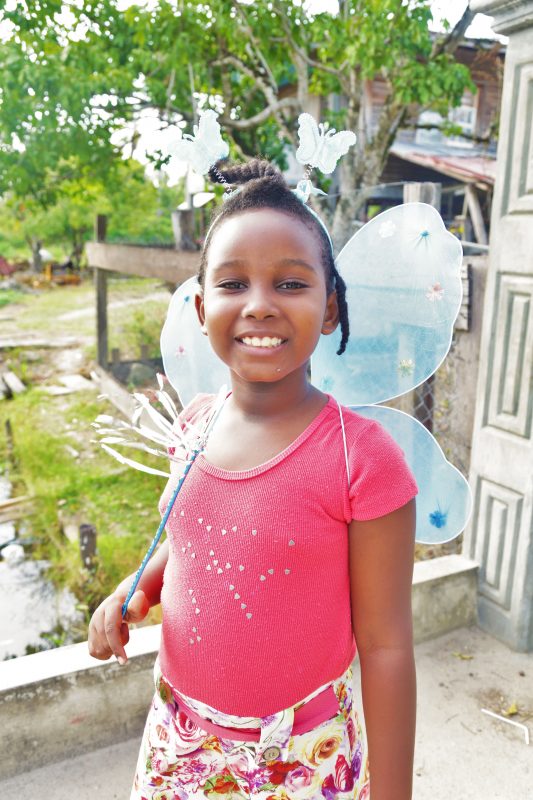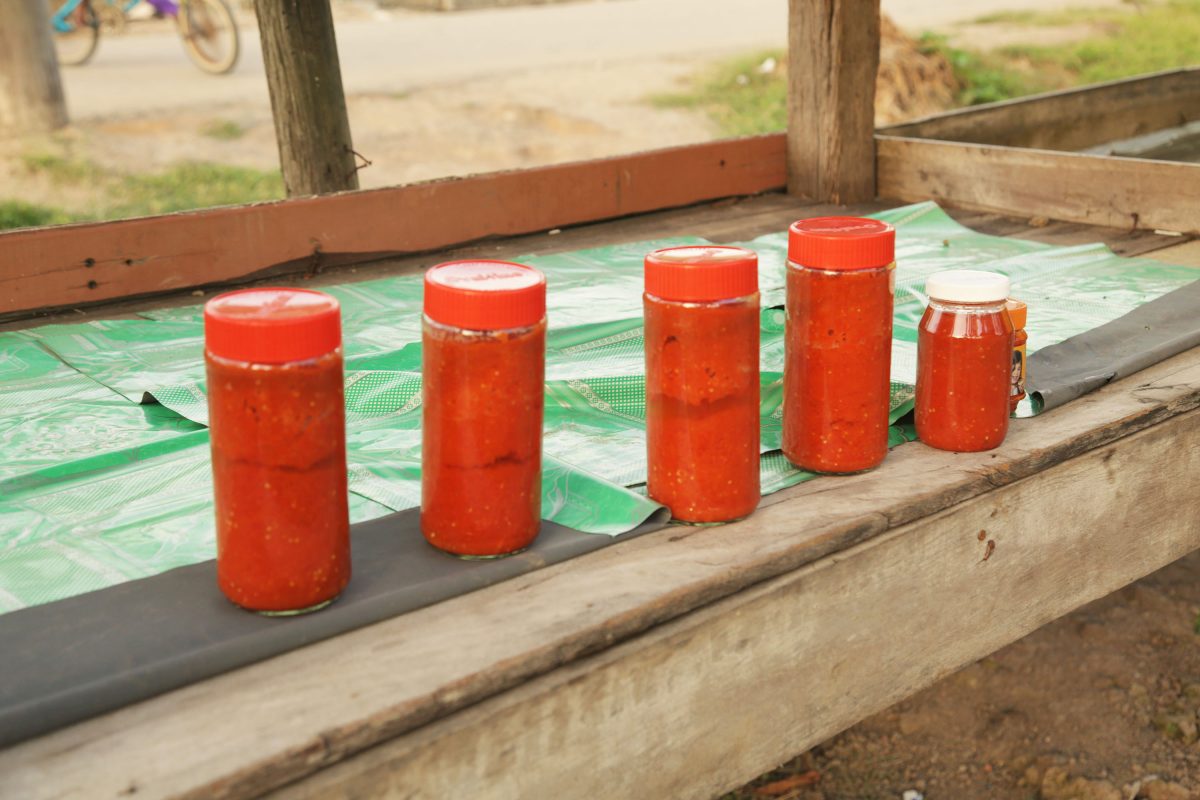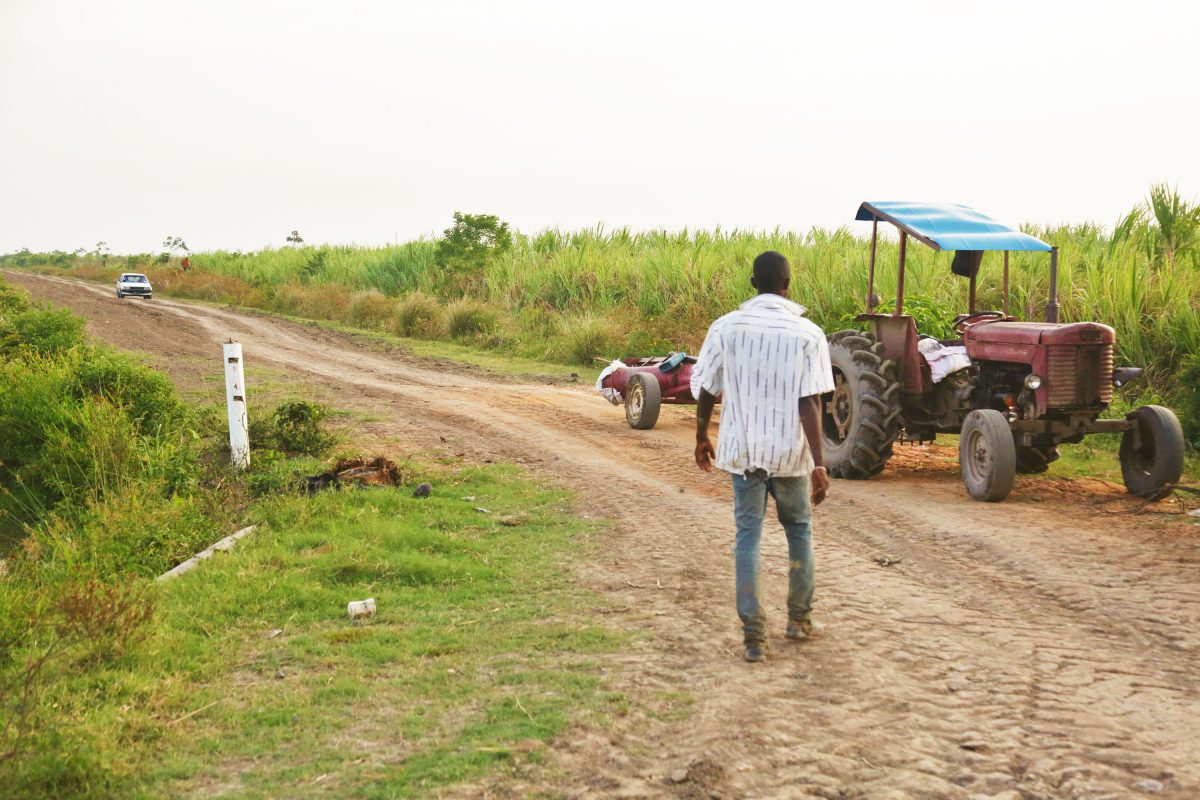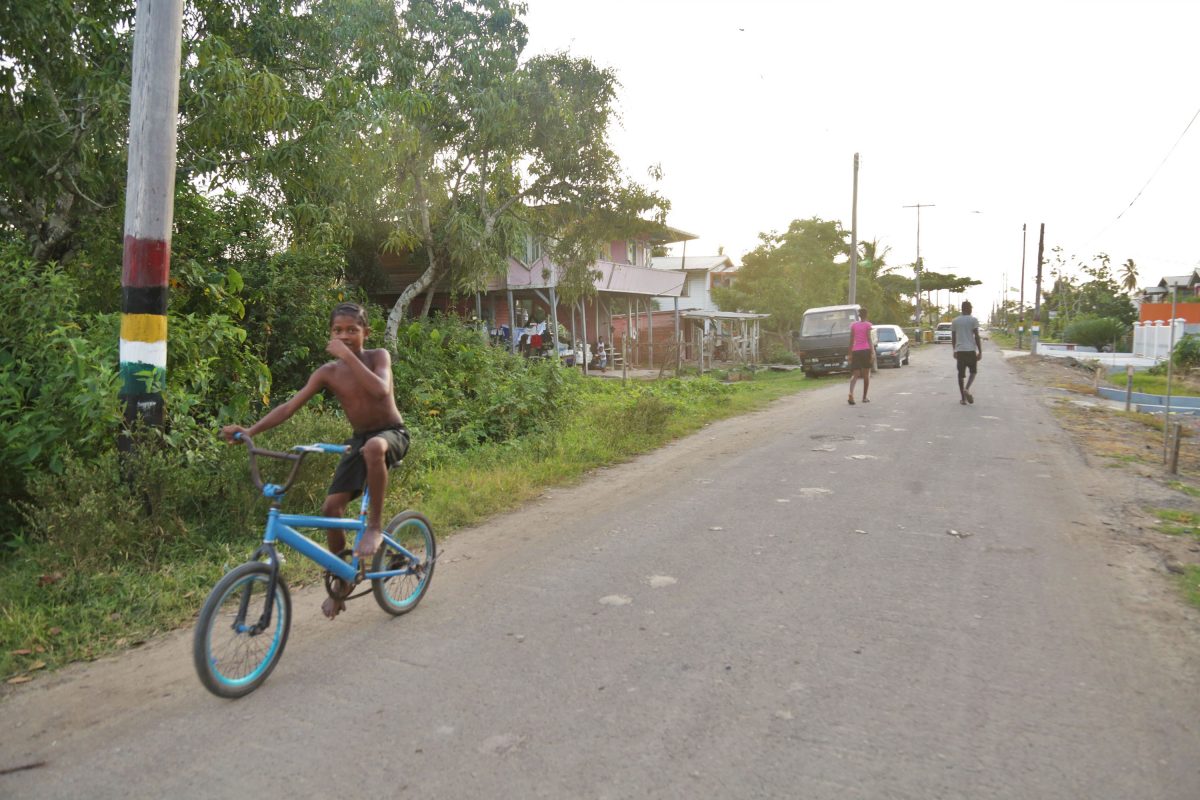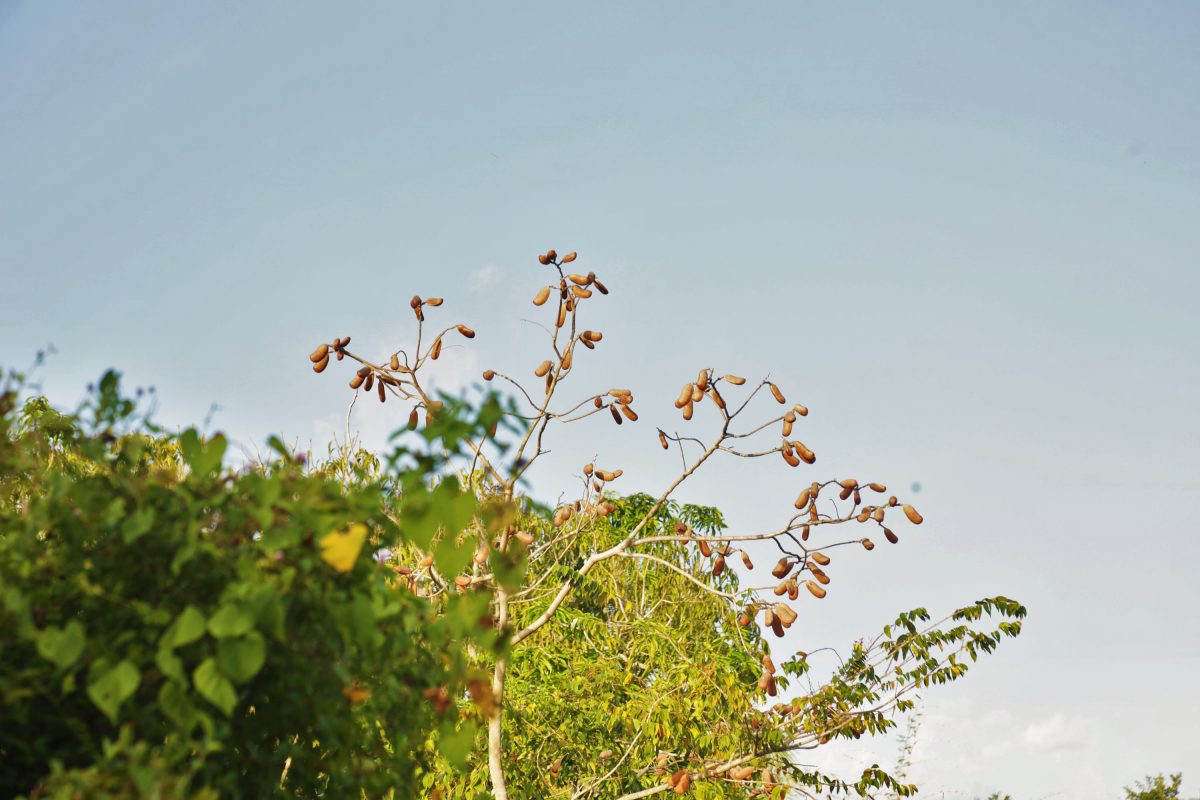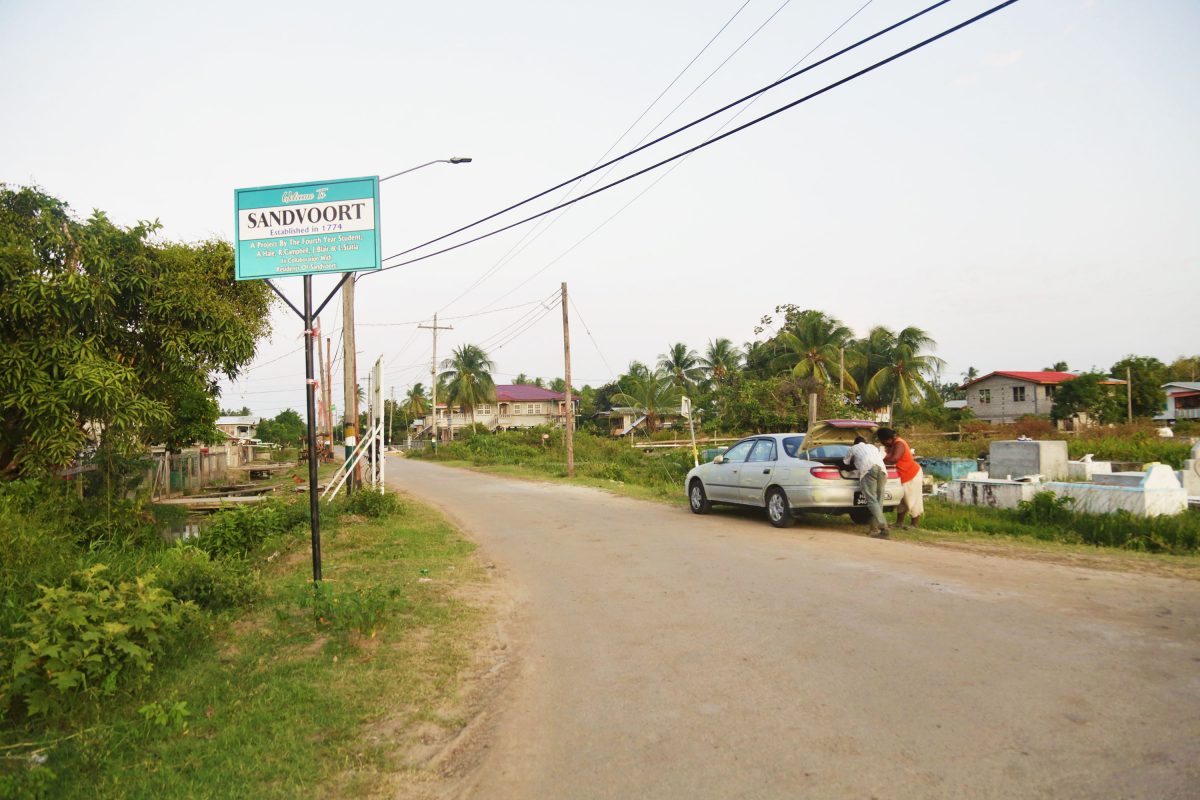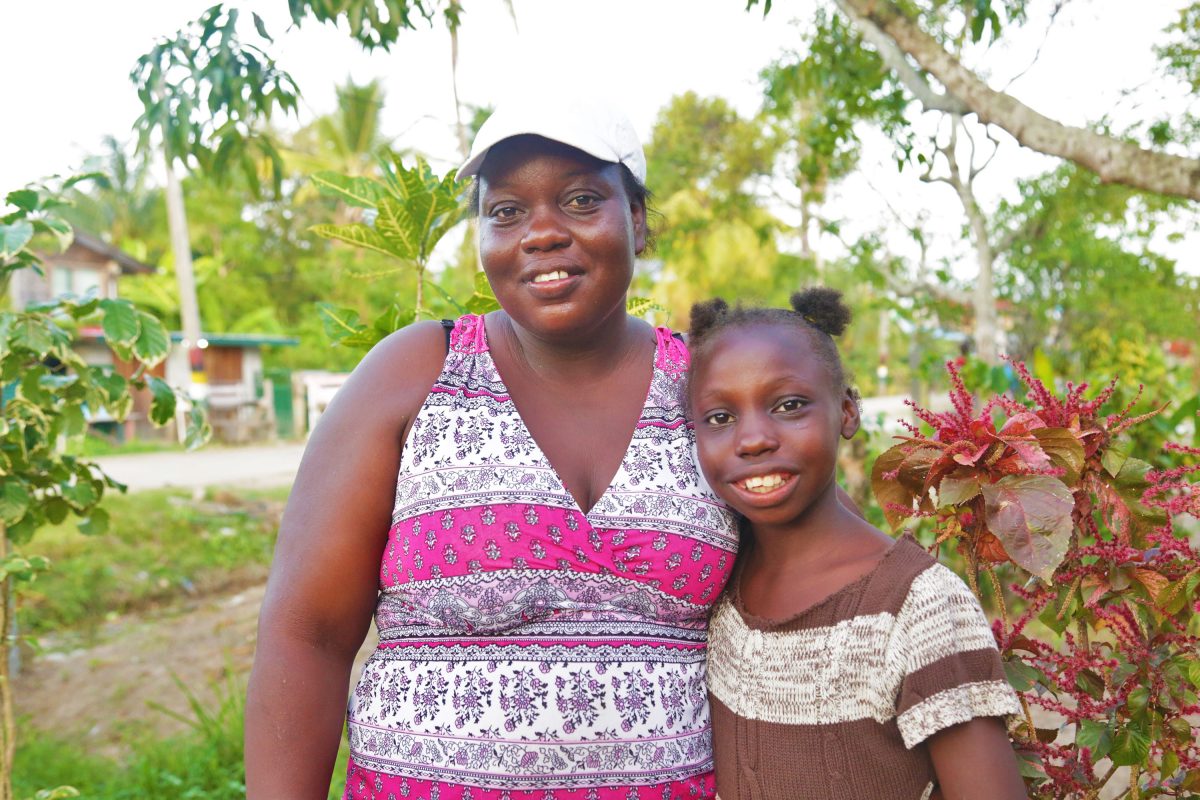Situated on the left bank of the Canje River, Berbice, some six kilometres from Government House in New Amsterdam, Sandvoort was established in 1774. It was bought by several former slaves who later sold portions of land to other ex-slaves. Originally a coffee plantation, Sandvoort got its name from the red root of a plant, according to a villager. While it is predominantly an agricultural community, some of Sandvoort’s approximately 400 residents work outside of the village.
About 80 per cent of the villagers are Seventh Day Adven-tists, but Sandvoort is a multicultural community.
Retired teacher Juliet Moriah, 67, was at home working on some corsages for a school event while keeping an eye on her grandson, Samuel.
“I was born right in front of the burial ground and I always tell them that when I die, they must bury me right there at the burial ground,” she said. “My great-grandmother was a village midwife; she deliver me. Her name was Auntie Mercy. [Women did not] go to the hospital. She used to deliver them and then the midwife that the government had used to come to sign up the documents. She used to come once a week, if I can remember right. [One] day in the week…, if you wanted to see the doctor or the medic or the nurse, you used to put a flag out by you gap.” Villagers used a white flag for health professionals and another colour if they needed a vet.
Moriah said during that time, what is now known as ‘Front View’ in the village was the English Quarter, while where she lives was the Dutch Quarter. From the cemetery to the backdam, referred to as ‘Back View’, was called Congo Town, a section that had been abandoned for decades. However, recently, people have started building houses there again.
According to Moriah, when someone died in the Dutch Quarter, the bell of the Orange Chapel Congregational Church tolled, while for someone in the English Quarter, the bell of the Anglican Church was rung. Orange Chapel Congregational was the first church in Sandvoort and was established by English Missionary Reverend John Wray in 1813. It was also said to be the third oldest Congregational church in the country. Though the building has since been taken down, concrete posts were since put up for a concrete structure. There was also a Moravian Church; the Adventists were the last to arrive in the village. Moriah said that as a little girl she had to attend the Congre-gational, Anglican and Moravian churches, like the other children in her village.
Moriah found some of the history of her village in a book titled, Life and Labours of John Wray. “… When he came here,” she shared, “he was the one who started teaching the slaves to read and write. His wife was also a midwife who used to deliver the babies on the different plantations around here. She used to teach young girls how to sew. They used to be sewing clothes for the plantation and other plantations. So other plantations used to send slaves to learn sewing…
“Before they had decided to live here, they came a couple of times… He and his wife end up getting about 12 children. Most of the children went back to England but one named Robert had died right here of Yellow Fever; he was eight when he died. John Wray died here too, and they buried him right on this plantation. But the plantation used to be more back into the backdam then and the cemetery was around there, not the one at the head of the village, today. It was said after John Wray died his son-in-law passed away the next day. Before 1997 we went to do a pilgrimage to John Wray’s tomb, and we don’t know where these bees came from. Plenty people get sting that day, some end up in the hospital. Nobody has since return to visit John Wray’s tomb.”
When she was a girl, Moriah said, the people of Sandvoort were known for making the best bush rum, a practice which is still illegal today. The rum was made in the backdam, away from prying eyes, and poured into “Jimmy John” and “Winchester” bottles. After numerous raids by the police, residents decided to set up a warning system, which included tolling of bells and blowing conch shells when they knew the police were on their way.
Once this was done, residents hurried to hide their bottles of rum by the riverside and in the trenches. The story was told about a police informant who went to Sandvoort and pretended to be someone who wanted to buy bush rum. Once he ascertained it was available, he told the seller he would return for it later that day. On leaving, he went to the Water Works, where she and other little girls went to get drinking water, walking a mile each way and fetching buckets of water on their heads until their barrels were filled up. At the Water Works, the informer called the police, telling them that he saw the rum himself. However, a villager overheard and hopping on his bicycle rode into the village to let them know. The residents hid their rum. According to Moriah, when the informant returned for his rum, which he had paid for, the men in the village were waiting and they whipped him with a thick leather belt. When the police arrived later, the informant was in too much pain to talk. Meanwhile, Sandvoort residents blew out their flambeaux, stayed in their houses and kept watch through the creases in the walls as the police searched unsuccessfully for the rum. Some people had hidden in the church and were arrested, but since the police had no evidence, they had to release them. When they returned, all of Sandvoort celebrated with their African drums and other musical instruments and, of course, their bush rum.
An amazing storyteller
Moriah, an amazing storyteller, shared another about one of her fore-parents and the police. “Passai, he did living by the koker bridge. Passai was doing he bush rum in the backdam. He would walk through the koker dam to go make his bush rum. So, this day he was going and he humming and going. When he reach he camp, he realize that the police were there. He see the imprint of their boots in the mud… he would always go barefoot plus rain did fall the night before, so the boots mark was easier to see.
“In he mind he said, ‘Oh larsh, police deh hey. Ah can’t act wild.’ They like they did hiding in the bush around and them long ago police used to want to catch you in the act before they carry you down. Not like today police: they would put that match in yuh hand and say they find you at the pot. He continue humming then he go and cut the bamboo and suh and the wood. He set the wood up fuh light he fire but like he throw away the match some part of the bush when he guh to cut the wood. Then he start act like he searching fuh the match. He say, ‘Lard is what dis’.
“He empty the bag, throw out everything so that who peeping could see that no matches in the bag. He say, ‘Dis woman, Mariah, whole day she sit down home. Look now me come to wuk and can’t get to do meh wuk. She know that a man coming fuh dis thing. Dis woman deh too good. She nah do wuk, she deh home. Imagine she nah put dis match hey. Me and she guh get wrong yuh know. Now meh guh gat to left hey fuh guh till out deh and me ain’t deh fuh dat now’.
“He say ‘Meh ah guh and when yuh see meh guh is me and she. I got to get dis match because ah got to finish dis thing’. The man walk easy, easy, easy and when yuh see he meet ah distance, he run. When he meet home, he breathless. He wife ask he what wrong and he say ‘Police’.
“He went and bathe, oil he skin, and he sit down in he chair in he verandah and he rock, rock, rock. When you see the police inspector come out, he go by Passai and he say, ‘You, Mr Ferrol, ah gon down meh hand on yuh’.
“Passai say, ‘Officer I ain’t know what yuh saying, I ain’t left me house fuh the day. Look ah deh in me house all the time. See me foot, look how it clean.’
“That’s how he smart dem police, them had to go in the man camp…is because ah them boots. The police never catch he after. They catch other people who went to jail and all of that.”
Speaking of growing up in Sandvoort, she said, “In my days the children were children of the community. Anybody could have talked to you, anybody could have beat you and if they call you if you going at the shop and they say ‘Picknin [Pickney] could you go at the shop? You can’t tell them no. You got to stop and hear what they want before you go. If they want you buy anything or if they want you fetch them some water from the trench you got to do it before you go to the shop. Now when you mother send you to the shop, hear what she gon tell you, ‘By the time I spit, before this spit dry, you must meet to shop and come back’.
“Now, a day I was going down the road with a glass bottle to buy fry oil and you know you can’t run with glass bottle cause if it break, you gon get licks when you come back. So, I going down the road.
“You know you got to tell everybody good afternoon. Everybody you used to call cuz them time, so you say, good afternoon cuz. How you doing? This man say ‘Picknin come, where you going?’ Ah stop and said, ‘Meh mother send me shop’ and he say, ‘Suh slow you walking?’ He tek he cutlass, he gimme three broadside and say, ‘Run and guh now’. The passion fly in meh. Ah going up the road with so much speed and water full up in meh eye ah can’t see where ah going. You know the bottle break!
“The shop man sorry fuh meh and he give me another bottle. Now ah coming back I considering whether he gon lash me again when I pass so now when ah passing, ah walk, walk and when you see I near fuh meet deh, ah bruk out cause ah say if he coming, he gon can’t catch me. That was how the code of conduct was at that time. If they call you and you ain’t go, they come till at yuh house and beat yuh.
“When I meet back home and meh mother said I tek too long. Ah say cousin so and so and ah can’t even say ah get lash because ah gon get extra more because something you had to do mek that bady beat you.
“But one thing ah did like was that anybody in the village you coulda get to comb you hair. If yuh mother beating yuh while she talking to somebody. They say to she, ‘You overdoing with this picknin. Picknin go and bring yuh clothes and come’ and they carry you by them and you spend two days and go back home.”
Asked how safe it was for children to have sleepovers at the houses of residents in the village, the woman claimed that such a thing as children being molested never happened in her days, as the elders were at least respectable in that way. She added that if such a thing did happen, it was kept a secret.
She recalled that she and her other siblings had designated house and farm chores waiting for them when they got home from school. On Friday nights, she and several of her siblings along with their mother fetched produce to the New Amsterdam Market on their heads, before returning home the following day.
At night, Moriah recalled, her mother checked their feet to ensure they were clean. “She never like yuh foot white. So, when you see nighttime come to inspect everybody and count everybody in them bed and yuh foot white, yuh got to come right
downstairs. And remember, them done tell you all them jumbie stories. Y’all these don’t get jumbie stories now. Then them send you downstairs to wash yuh foot. Now this house didn’t been in front hey, it did build more at the back. Now tell me as a lil child when you coming from back to come till in front at this trench here to wash yuh foot. Well I tell you; I know nuff time I didn’t meet trench especially when it ain’t got moonlight. I used to use me spit and clean meh foot. I used to rub, rub, rub. You got to make sure she see the foot as soon as you do it,” she chuckled.
‘I love this village’
A normal day now finds Moriah doing chores and helping to take care of her grandchildren. Just as I was leaving, she took me to the nearby Canje River, which is situated behind her house.
Denzel Southwell, who is employed as a clerk with the New Amsterdam Mayor and Town Council was just getting home. Gospel music was flowing from inside the house. He was interested in talking about things he wanted to see for the youths. Growing up, he said, he had a field nearby the Sandvoort Primary School (once known as St Ambrose Anglican School) where he played with the other boys in his village. He also swam in the river.
“The boys here need a recreational facility while many of our older youths leave the community because of no place to live. They want their own places and we have enough land that can take care of that. I hear they are planning to look into creating more area for the building of houses. [As regards the facility], there is land right behind the primary school that just needs to be cleaned and they can use it,” he said.
The modest Southwell did not speak of himself, but it was later revealed that he can sing and play four instruments: the piano, guitar, cornet and the saxophone.
At a house where bottles of pepper sauce were for sale, Wynette Haywood was busy inside. Haywood shared that she is an avid reader of the World beyond Georgetown column and was excited that Sandvoort was being featured.
Haywood was born and raised in Sandvoort and said she grew up in a community of people who always looked out for each other. “I run a small snackette, but I didn’t make anything today. Today is my rest day. I sell egg balls, fudge, tamarind balls, sugar cakes, plantain chips… I went to Linden APNU rally and took my stuff to sell there and all sold out. I had yellow and green sugar cakes. I was like, ‘Come and get yuh Granger sugar cakes now, yuh yellow and green sugar cakes hey now’. I didn’t get to take any pictures,” Haywood said.
Earlier in the day, she had gone with her daughter on her school’s Mash Road March in the village.
“I love this village,” Haywood said, but, you know, what I would want is a recreational centre for our children here where families can go and hang out together. Every year in July we have the soiree occasion in here and on August 1, for Emancipation, we would go up to 63 Beach for the mega celebration.”
